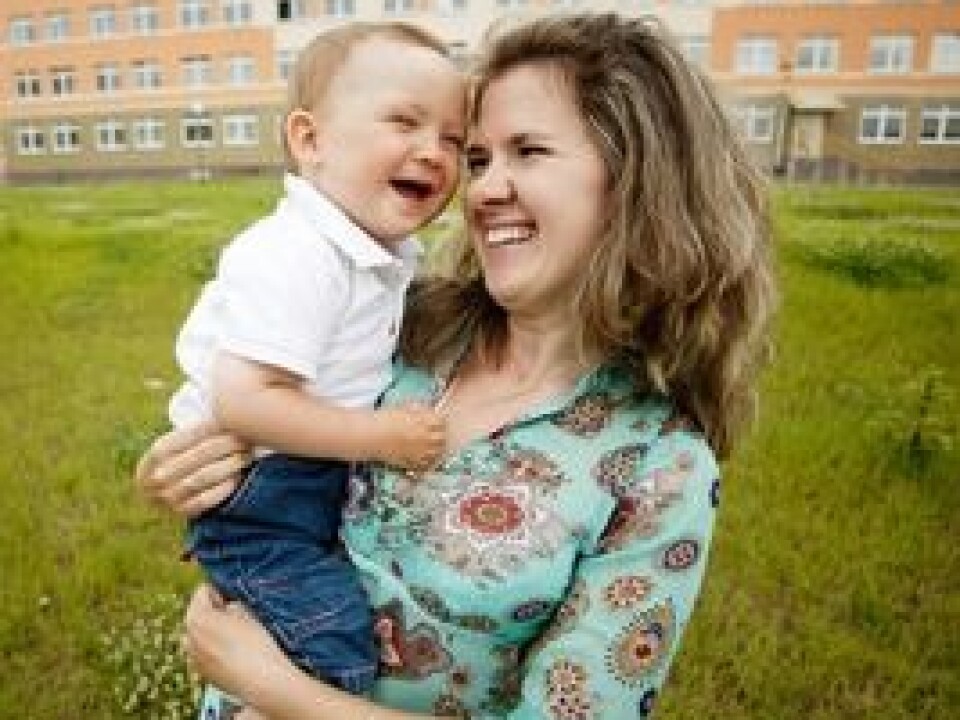
Personality traits important in male fertility
Neurotic men are now more likely to be childless than other men. This wasn’t the case just a few decades ago.
Denne artikkelen er over ti år gammel og kan inneholde utdatert informasjon.
A portion of the population has always been childless. There are any number of explanations, including physical disorders – as with couples who are involuntarily infertile.
But the share of adults who never have children despite having no physical fertility problems is now climbing. And Norwegian statistics show this trend to be more evident for men than women.
Among Norwegians born in 1940, 10 percent of women and 15 percent of men were childless at the age of 40. In the next generation, born in 1970, the numbers had risen a little for women – to 13 percent. At the same time a whopping 25 percent of the men were childless.
Why are an increasing number of men dropping out of family life?
Vegard Skirbekk, a researcher at the International Institute for Applied System Analysis in Austria and his colleague Morten Blekesaune, of Agder University College have now looked into ways in which personality affects a person's chance of having children.

Their results indicate that personality is playing an increasingly larger role in determing who becomes parents and who does not.
Neurotics have fewer children
It’s no surprise that personality has an impact on fertility ― or on how many children a person fathers or gives birth to.
Studies from several countries have shown that being an extrovert is often associated with having several children. People who score high in extroversion generally tend to be social, dominant and active.
On the other hand, people who fall into the neurotic category often have fewer children than the norm. Neurotics are rather anxious or worried, touchy and emotionally unstable.
Skirbekk and Blekesaune also found these links when they studied data from 7,017 Norwegians born between 1927 to 1968.
The material also shows that women who are goal-oriented and self-disciplined have a tendency to have fewer children. The same goes for men who are open to new experiences. Perhaps these groups elect to forego parenthood in order to concentrate on careers or experience more in life.
But some of the most intriguing finds in the Norwegian material are about neurotic men.
The study shows that neurotic traits did not always tally with a bigger risk of being childless.
“Being neurotic doesn’t appear to have any significance for the number of children for men born before 1957. But today it has become a key factor,” says Skirbekk.
Extended freedom
Skirbekk thinks there’s little to indicate that more men are neurotic now than they were in the past.
If so, this means the personality trait has a greater impact on fertility than it used to. So why are neurotic men less likely to father children today?
Skirbekk thinks it is related to the increase in personal freedom of choice we now enjoy. This involves the freedom to choose a partner, certainly, but also the freedom to refrain from having a partner or children.
This means that modern women have the option of declining to mate with men they consider less attractive candidates as fathers of their children, even if they have no other suitors at hand. In earlier times this option was much less prevalent.
In addition, this means that neurotic men can also decide not to have children. Fathering a family entails great obligations and changes of lifestyle. These are duties that might not seem so attractive for a person who is often anxious and emotionally instable.
“We don’t actually know if it is the women who avoid neurotic men as fathers of their children or whether these men are opting not to have children,” says Skirbekk.
Putting potential partners to the test
Another possible explanation for the mounting ranks of childless neurotic men is that modern people are more likely now to cohabit with a partner before getting married or forming a permanent partnership and having children. This might change the criteria we use for choosing a life partner in with whom we choose to start a family.
“Personality traits are probably playing a greater role than they used to. Perhaps other characteristics that can be clearly seen without living with a person, such as status or income, might have been getting more attention,” suggests Skirbekk.
He thinks such a change could be affecting men more than women. Research has already confirmed what most couples know, that women are more likely than men to continuously evaluate the quality of their relationships. The researchers point out that women are also more likely than men to be the ones who terminate relationships they find unsatisfactory.
Indirect causes could also explain why neurotic men fall out of the game.
Several studies have shown that men’s incomes are still a big factor in a woman’s choice of a partner. Other studies also show that neurotic men are more likely to have lower-than-average incomes.
Norway in the lead
An array of factors could be behind the numbers that show that today’s neurotic men are more often childless.
Or perhaps the cause and effect relationship goes the other way. Could men become neurotic because they haven’t managed to attain the age-old biological and social goal of passing on their genes and fathering a family?
Skirbekk and Blekesaune say this possible explanation is undermined by a number of studies that show that personality doesn’t change much once we reach adulthood.
Skirbekk points out that their preliminary results point to rather small differences in fertility among diverse personality types. But the researchers think this could be the start of a development in which personality is increasingly spotlighted.
This may also be the case outside of Scandinavia.
“Often we see Norway leading the way in developments, and then many parts of the world follow suit.”
If so, we ought to be aware that certain types of personalities will have a greater tendency to be left out.
“If it’s true that some neurotic men want to children, but don’t have the opportunity, maybe they should be getting help making changes that would help enable them to have them. Psychological treatment is available and it can help people gain control of their worries and emotional ups and downs.”
Reference:
V. Skirbekk & M. Blekesaune, Personality Traits Increasingly Important for Male Fertility: Evidence from Norway, European Journal of Personality, 2013.
----------------------------
Read the Norwegian version of this article at forskning.no
Translated by: Glenn Ostling

































